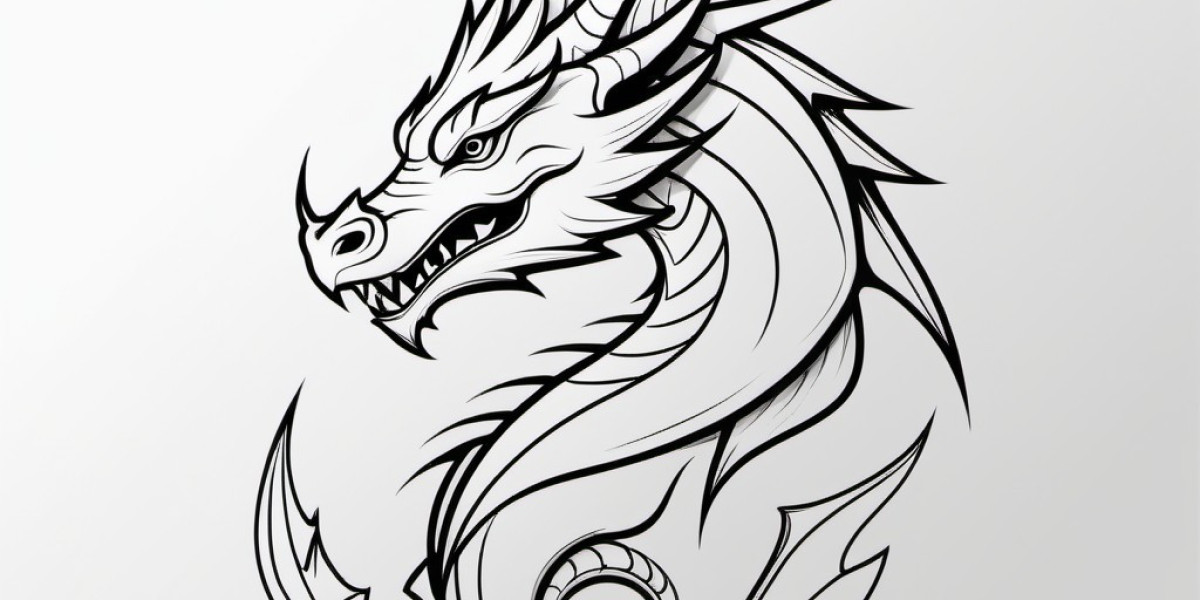dragon symbol , mythical creatures of awe and wonder, have woven themselves into the fabric of human imagination across the globe. Their symbolism spans continents and cultures, representing an array of meanings—strength, wisdom, chaos, and renewal. These versatile beings bridge the spiritual and material worlds, standing as both protectors and challengers in the stories that define human aspirations and fears.
Eastern Dragons: Symbols of Benevolence and Harmony
In Eastern traditions, dragons are revered as divine and benevolent beings. Their presence often symbolizes harmony with nature, prosperity, and cosmic balance.
Chinese Dragons: Known as long, Chinese dragons are deeply embedded in cultural and spiritual life. They are associated with water and the heavens, controlling rain, rivers, and seas. A dragon’s appearance is considered an auspicious sign, symbolizing abundance and prosperity. Chinese emperors claimed the dragon as their emblem, underscoring its connection to power and divine authority.
Dragons in Japan and Korea: Japanese dragons (ryū) and Korean dragons (yong) share a connection to water and spiritual protection. In Japan, dragons are often linked to deities and temple guardians, embodying wisdom and balance. Korean dragons are similarly depicted as powerful yet kind, bestowing blessings and rainfall.
The Naga in South Asia: In Indian and Southeast Asian lore, nagas—serpent-like dragons—are seen as both protectors and bringers of fertility. They appear as guardians of temples, treasures, and sacred waters, symbolizing life, renewal, and the mysteries of the natural world.
Western Dragons: Embodiments of Chaos and Valor
In contrast to their Eastern counterparts, Western dragons are often portrayed as destructive forces or antagonists. Their role in myths reflects a worldview that sees them as challenges to overcome or forces of chaos to be tamed.
Fierce Guardians: Western dragons are frequently depicted as fire-breathing monsters that hoard treasure or terrorize villages. In legends like St. George and the Dragon, the creature represents evil or chaos that must be vanquished by a hero, symbolizing the triumph of courage over adversity.
Greed and Corruption: In European folklore, dragons are often linked to greed. The dragon Fafnir from Norse mythology, who hoards treasure and becomes corrupted by his greed, serves as a cautionary tale about the destructive nature of unchecked desires.
Tests of Heroism: Dragons in Western tales often serve as trials for heroes. Slaying a dragon, as seen in Beowulf, is a symbolic act of overcoming fear, achieving personal growth, and restoring order.
Common Symbolic Themes of Dragons
Despite cultural differences, dragons universally embody themes that resonate deeply with the human experience.
Power and Dominion:
Dragons are synonymous with power, often representing the forces of nature, sovereignty, or the supernatural. In Eastern traditions, they embody a life-giving force, while in Western lore, they reflect humanity’s struggle to master chaos.Guardianship:
Dragons frequently appear as protectors—of treasures, sacred places, or spiritual knowledge. This role underscores their connection to wisdom and the idea that valuable rewards come through overcoming great challenges.Transformation and Renewal:
Across cultures, dragons symbolize cycles of destruction and renewal. In alchemy, the dragon represents transformation—burning away impurities to reveal enlightenment. This theme reflects humanity’s journey of self-discovery and growth.Balance and Duality:
Dragons often embody dualities: creation and destruction, wisdom and chaos, or life and death. Eastern dragons reflect the harmonious interplay of opposites, while Western dragons emphasize the tension between conflicting forces.
Dragons in Modern Culture: From Myth to Personal Symbol
Dragons continue to captivate contemporary culture, evolving in their symbolism while retaining their core mystique.
Literature and Entertainment: Dragons are prominent in modern fantasy, from Smaug in The Hobbit to the dragons of Game of Thrones. These stories explore their complexity, presenting them as both majestic beings and fearsome adversaries.
Personal Symbols: As icons of strength, transformation, and resilience, dragons feature in tattoos, art, and personal branding. They inspire individuals to embrace their inner power and overcome life’s challenges.
Spiritual Significance: In spiritual practices, dragons symbolize inner energy and awakening. The kundalini serpent in yoga, often compared to a dragon, represents latent energy that leads to enlightenment when fully realized.
Why the Dragon Endures
The dragon’s universal appeal lies in its ability to embody humanity’s deepest fears, highest aspirations, and profound connection to the natural and spiritual worlds. Whether as a benevolent guide, a formidable adversary, or a symbol of inner strength, the dragon continues to inspire awe and imagination.
Dragons remind us of the dualities within ourselves and the world around us. They challenge us to embrace change, seek balance, and strive for greatness. As timeless symbols of power and transformation, dragons will forever hold a place in the collective consciousness, bridging the realms of myth and reality.







